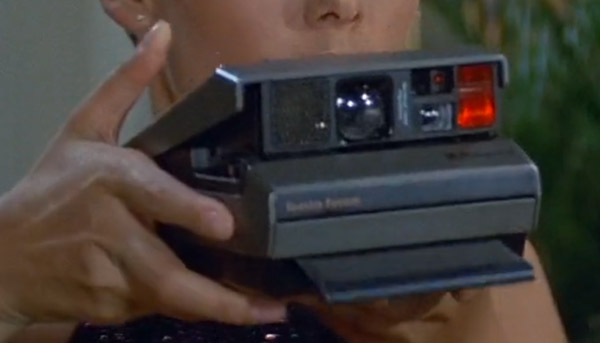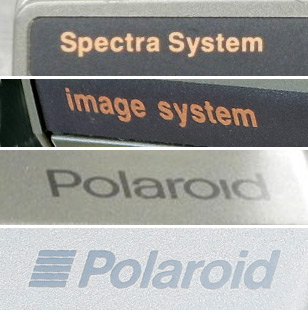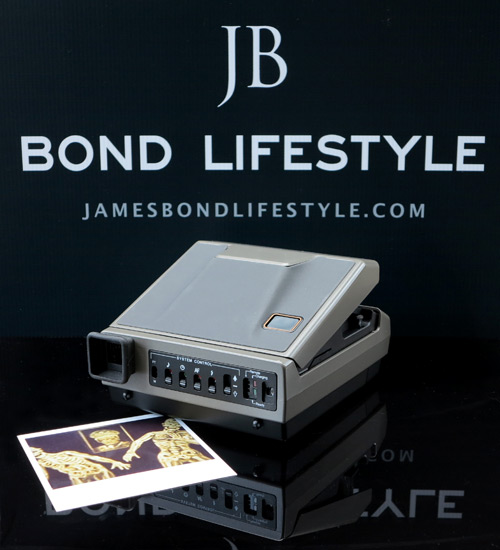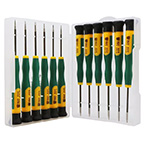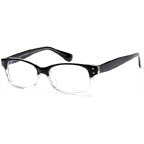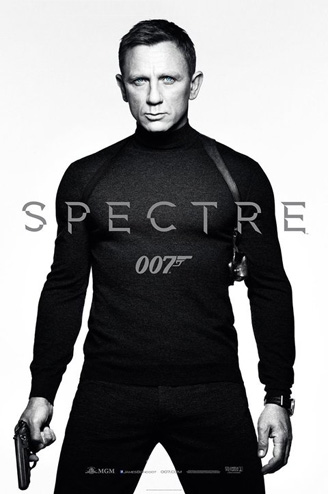Polaroid Spectra System camera
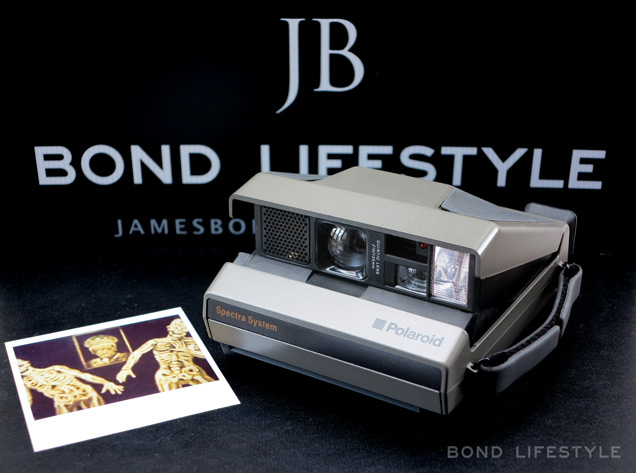
Q (Desmond Llewelyn) brings a Polaroid Spectra System Camera with deadly laser beam to James Bond (Timothy Dalton) when they are in Isthmus City in the movie Licence To Kill (1989). James Bond never uses the camera, but he and Q almost get fried when CIA agent Pam Bouvier takes a picture of them, accidentally shooting the laser beam. The photo shows an infrared image of Q and Bond as skeletons and even the photo of the president on the wall in 'infrared' form.
The Polaroid Spectra/Image system was introduced by Polaroid in 1986 and was an improvement over the previous 600 film models and still considered to be one of the better Polaroid cameras. The camera uses Spectra film (or 1200 or Image film in some countries) which is slightly bigger and more widescreen than the 600 film. The power to run the camera is built in the film cassette. In 2008 Polaroid decided to end the production of Spectra/Image film, but in 2010, the Impossible Project, set up by former employees, started to produce film again in an old Polaroid factory in Enschede, The Netherlands. This has led to a revival of the film and cameras which still have a large following. Read more about the Impossible Project and get Polaroid film on the Impossible Project website.
Polaroid Spectra System cameras are still easy to find online on for example eBay (starting as cheap as $9,99) or similar websites.
The version used in the film is the one pictured here, with gold colored "Spectra System" text on the front and dark grey Polaroid logo (including five horizontal bars) on the lighter part on the other side. In other countries than the US, the camera was marketed as "image system" instead of "Spectra System" so the text is then different.
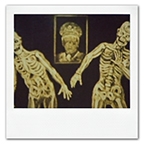 NEW: Download the Polaroid photo and print it for your collection.
NEW: Download the Polaroid photo and print it for your collection.
The camera in the film has a red Flash from which the laser beam appears. You can easily make the lens of your camera red with a red marker or add red sheet paper in front of the glass. Adding a laser might prove to be more difficult.
Polaroid photos were also seen in the movie Diamonds Are Forever (1971), when Tiffany Case (Jill St. John) uses the older type of Polaroid pull-away film to develop a print of fingerprints from Peter Franks (James Bond).




